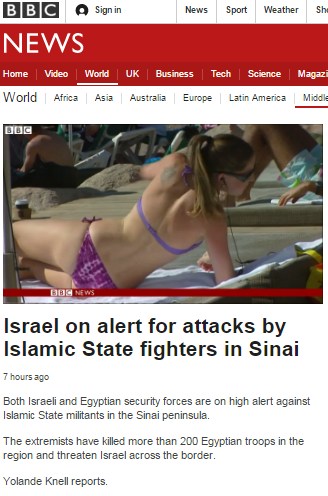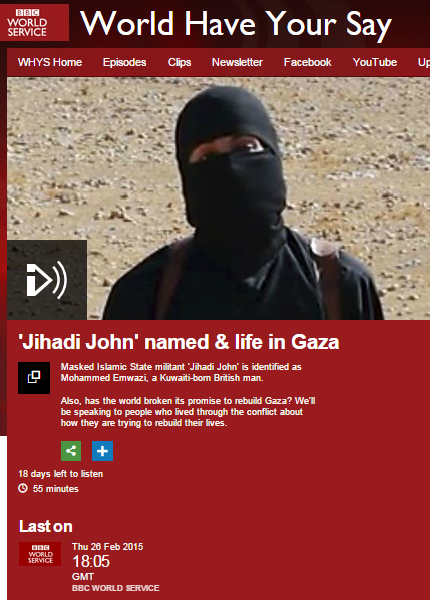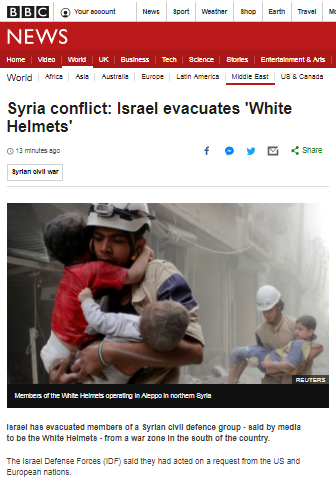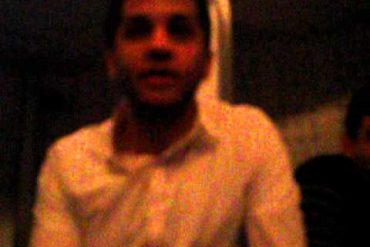As was noted here in an earlier related post, on August 18th the BBC World Service radio programme ‘World Have Your Say’ included an item (available from 38:38 here) about “the Israeli columnist who’s decided it’s time to call Israel an ‘apartheid’ society”.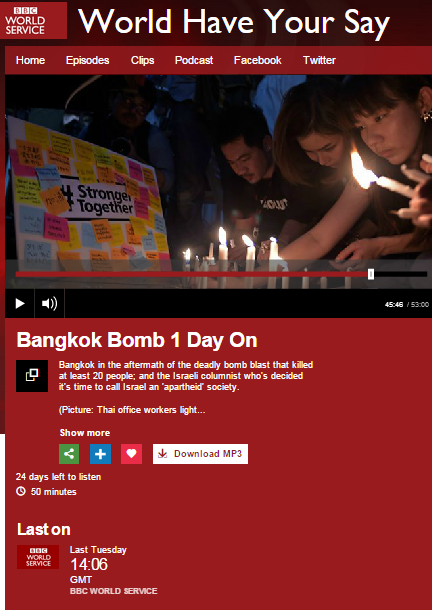
The BBC’s explanation of the inclusion of that item in the programme was presented by host and WHYS producer Ben James in his introduction.
“…we reflect the big stories, the big discussions, the things you’re taking part in discussing online and for the next ten minutes or so we’re gonna talk about exactly one of those things; an article that’s been widely shared – 24 thousand shares last time we checked. An article; a column in the Israeli news site Ha’aretz – that’s a daily liberal newspaper in Israel – with the headline ‘It’s time to admit it. Israeli policy is what it is: apartheid’.”
James’ billing of an article with 24,000 shares as one of “the big stories, the big discussions” is of course questionable. Indeed one seriously doubts that most listeners to BBC World Service radio would have ever heard of this column had the BBC not chosen to showcase and promote it. Significantly, this article is behind Ha’aretz’s paywall and so the vast majority of listeners would not even be able to read it before engaging in discussion of its content on the WHYS Facebook page – as James encourages them to do.
That in itself raises the question of whether a BBC programme which purports to be “a global discussion show” should promote content which audiences have to pay to view and whether facilitation of ‘discussion’ of an article which the BBC must know full well most audience members will not be able to read really does anything to contribute to fulfilling the public purpose remit of building “a global understanding of international issues” which is the basis for the production of such discussion shows.
Bradley Burston’s blog post reflects the opinions of one man with a number of criticisms to level at his country’s government. Unfortunately, he chose to voice his opprobrium under the attention-grabbing click-bait headline of ‘apartheid’ even though some of the arguments he puts forward in order to justify the use of that term do not stand up to scrutiny.
One of the claims in Burston’s post, for example, was the following:
“Apartheid means Likud lawmaker and former Shin Bet chief Avi Dichter calling Sunday for separate, segregated roads and highways for Jews and Arabs in the West Bank.” (Emphasis added.)
However, as the link provided by Burston shows, Dichter did not call for separation between “Jews and Arabs” at all. [emphasis added]
“Likud MK Avi Dichter said that separating Israeli and Palestinian drivers on West Bank highways was an inevitable move. . . .
Segregating roads, he declared, would ensure that Palestinian vehicles wouldn’t be able to enter Israeli settlements and Israel vehicles wouldn’t be able to enter Palestinian cities or villages.”
That of course is relevant given that over 20% of Israel’s population is not Jewish and Dichter’s proposal clearly relates to security issues rather than race. Ha’aretz has since amended that part of Burston’s article after being contacted by our colleagues at CAMERA’s Israel office. Another of Burston’s ‘supporting arguments’ for his use of the word ‘apartheid’ (used both in the article and the radio broadcast) is that he doesn’t like the opinions of Israel’s new ambassador to the UN.
Another of Burston’s ‘supporting arguments’ for his use of the word ‘apartheid’ (used both in the article and the radio broadcast) is that he doesn’t like the opinions of Israel’s new ambassador to the UN.
“…the prime minister’s choice to represent all of us, all of Israel at the United Nations, is a man who proposed legislation to annex the West Bank, effectively creating Bantustans for Palestinians who would live there stateless, deprived of basic human rights.”
Burston of course neglects to mention that – as his link once again shows – the proposal in question is well over four years old and it obviously was not adopted by the government.
Yet another claim put forward by Burston in both the article and the BBC radio interview to support his use of the term ‘apartheid’ goes as follows:
“…terrorists firebombed a West Bank Palestinian home, annihilating a family, murdering an 18-month-old boy and his father, burning his mother over 90 percent of her body – only to have Israel’s government rule the family ineligible for the financial support and compensation automatically granted Israeli victims of terrorism, settlers included.”
As the two additional guests brought into the second half of the item (Ran Bar Yoshafat and Benjamin Pogrund) pointed out, the circumstances surrounding the arson attack in Duma are not yet clear as no arrests have been announced and the Dawabshe family are not Israeli citizens (who pay national insurance contributions) and that is the real reason they are not automatically entitled to the compensation for victims of terrorism awarded to Israeli citizens of any faith or ethnic group – although they are entitled to apply. The BBC’s Ben James could of course have reminded listeners at this point that the family of Mohamed Abu Khdeir does receive such financial benefits from the state – but he did not.
Similarly, when Burston claimed that “there are two million Palestinians there who do not have the right to vote”, James should obviously have clarified that Palestinians living in Areas A & B (the overwhelming majority) certainly do have the right to vote in the Palestinian elections which are relevant to the authority under which they live.
Of course Bradley Burston is perfectly entitled to promote his opinions – no matter how flimsily rooted in reality – even by means of the careless use of hyperbolic click-bait language on the website of an eternally wilting Israeli national newspaper. The difference between that and promotion of the same article on the BBC World Service is that Israelis have enough prior background knowledge to be capable of viewing Burston’s claims within their appropriate context whilst BBC audiences are serially deprived of such information.
Coupled with the fact that – as noted above – most listeners would not have been able to read the article at all because of its being confined behind a paywall, it is obvious that the intention behind this item was not to “reflect the big stories, the big discussions” as claimed by James, but to generate a story with the effect of mainstreaming the notion of ‘Israel as an apartheid state’ into worldwide discussion.
That, of course, has deep significance because the employment of the misnomer ‘apartheid’ to describe Israel and its policies is not a matter of chance. Behind its frequent tactical use by anti-Israel campaigners (and to be clear – Bradley Burston is not one) lie clear political motives and ideologies: the branding of Israel as an entity the existence of which right-minded people cannot tolerate. Does the BBC really want to lend its weight to the casual mainstreaming of such an ideology?

